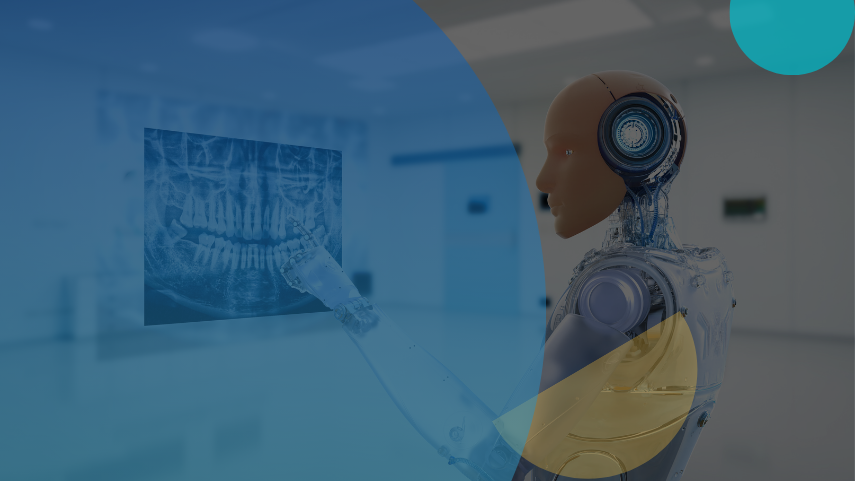
Seeking Assistance to Expand AI’s Presence in Medical Education
The innovation team of a Fortune 500 pharmaceutical company was tasked with expanding its presence in AI-based solutions for medical education as the industry shifted towards more tech-driven learning models. However, several key challenges were shaping the team’s research:
- Overwhelming Market Options: With numerous AI technologies available, the team faced difficulty in distinguishing which solutions were truly innovative and could be integrated seamlessly with their existing systems.
- Integration and Cost Concerns: Many AI solutions lacked the integration capabilities needed to work efficiently with the company’s infrastructure, or they exceeded the budget constraints, creating concerns about long-term feasibility.
- Scalability and Quality: The solutions needed to not only fit within the current system but also be scalable to support the company’s long-term growth in medical education without compromising on quality or usability.
The team was focused on identifying AI-based technologies under development that could be adapted for medical education, exploring successful implementations in other industries for inspiration, and ensuring any solution they selected would be cost-efficient, user-friendly, and scalable.
Immediate AI Solutions and Emerging Technologies to Transform Medical Education and Surgical Training
The client received a comprehensive set of immediate, ready-to-implement AI solutions and innovative technologies still in the research phase for potential future partnerships. This approach allowed the client to address their short-term needs while positioning themselves for future growth in AI-driven medical education.
For example, the study highlighted Apollo ProHealthDeepX, a mixed reality tool powered by Microsoft HoloLens, which visualizes patients’ heart health risks through AI, enhancing patient engagement and interaction. Additionally, Theator, an AI-driven platform, was showcased for using computer vision to analyze surgical procedures in real-time, providing surgeons with actionable insights to improve performance and patient care.
These insights equipped the client to enhance their educational capabilities immediately while building a competitive edge in the healthcare education sector.
Key Findings from the Analysis
The analysis of AI-enabled technologies in medical education revealed multiple key findings, this included:
Apollo ProHealthDeepX
Developed by Apollo Hospitals, this mixed reality tool, powered by Microsoft HoloLens, visualizes a patient’s heart health risks in an immersive experience. By integrating AI-generated cardiac risk scores with patient vitals and medical history, the tool creates a 3D image of the heart. This helps patients and doctors better understand heart conditions, driving greater case acceptance and improving preventive care efforts. Built on data from 400,000 patients, Apollo ProHealthDeepX is a significant step forward in personalized healthcare education.
Theator
This AI-driven platform uses computer vision to analyze surgical procedures in real-time. Theator provides surgeons with actionable insights to improve performance by capturing and reviewing surgical data. The platform’s AI annotates key moments in surgery, enabling surgeons to assess their techniques and outcomes, enhancing individual performance and overall surgical education.
Research Process- How did GreyB Help?
Domain Understanding and Framework Design
The research process begins with a deep dive into the target domain. Analysts focus on domain understanding to establish a clear framework that guides the solution identification process. Simultaneously, relevant solutions are extracted using manual screening, where GreyB analysts ensure only high-quality, pertinent solutions are selected for further analysis.
Solution Tagging and In-depth Analysis
In the second phase, the extracted solutions are tagged and categorized within the designed framework. This phase involves evaluating solutions based on their relevance and feasibility for further analysis. A more detailed examination is then conducted on these selected solutions, allowing for an in-depth understanding of their potential applications and impact.
Evaluation and Recommendations
In the final phase, solutions undergo a quick preliminary evaluation, followed by a detailed analysis of the top-ranked solutions. Based on this comprehensive evaluation, GreyB provides strategic recommendations. These solutions are categorized by their readiness for implementation, helping the client decide on immediate actions and future opportunities.
Integrating AI into medical education requires careful consideration of teaching methodologies and their impact on learning outcomes. Companies face several challenges, including:
- Evaluating the effectiveness of AI-driven educational tools to enhance student learning and engagement.
- Identifying relevant AI technologies that can be incorporated into curricula for improved skills development.
- Exploring collaborative opportunities to advance AI research and practical applications in healthcare education.
If you’re interested in implementing AI solutions to enhance medical education but need assistance assessing the best options, contact our experts today!









